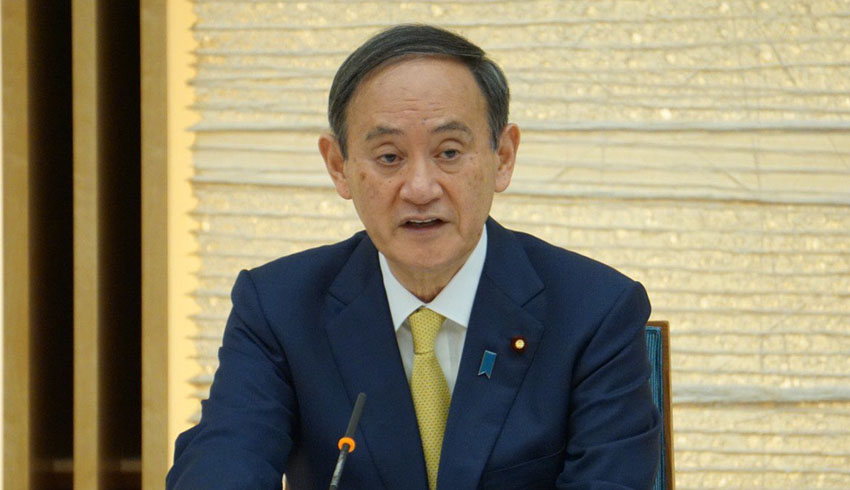Analysts weigh in on the diplomatic row triggered by Japan’s new defence white paper.
To continue reading the rest of this article, please log in.
Create free account to get unlimited news articles and more!
Earlier this month, Japan released its latest defence white paper — Defense of Japan 2021 — which largely promotes continuity from the policy framework established by Prime Minister Yoshihide Suga’s predecessor, Shinzo Abe.
However, a striking inclusion in this year’s white paper is a strong emphasis on the importance of Taiwan for “Japan’s security and the stability of the international community”.
This comes amid a marked escalation in tensions between Beijing and Taipei, with the People’s Liberation Army (PLA) repeatedly breaching Taiwan’s air defence identification zone (ADIZ).
These intimidatory actions have prompted the US Indo-Pacific Command to flag risks of a clash within the next six years.
As such, in its new white paper, Japan states it must “pay close attention to the situation with a sense of crisis more than ever before”.
According to Thomas Wilkins — a senior lecturer at the University of Sydney and a senior research fellow at the Japan Institute for International Affairs — and Daisuke Akimoto — an official secretary in Japan’s House of Representatives — Japan’s new tone has, unsurprisingly, caught Beijing’s ire as doubles down on efforts to achieve ‘national reunification’.
“Though Japan has maintained warm, if low-key, relations with Taipei, it has traditionally eschewed overt support for the beleaguered island democracy,” they write in ASPI’s The Strategist.
“The 2021 white paper signals a significant policy change.”
The white paper also flags the direct ramp up in aggression towards Japan, given heightened tensions in the East China Sea and waters around the Senkaku Islands.
Japan describes these moves as “relentless” attempts to “unilaterally change the status quo by coercion”, creating a “grave matter of concern”.
In line with these concerns, Japan criticises recently enacted legislation, which empowers China’s coast guard, claiming it is inconsistent with international law.
Among the other security issues raised in the white paper are North Korea’s nuclear program, environmental challenges, and the response to natural disasters.
Wilkins and Akimoto observe that this is not mere rhetoric, pointing to references to advancements in Japan’s military technology.
“To support Japan’s more proactive role in regional diplomacy and security, the white paper showcases recent developments in Japanese defence technology, especially in the new domains of space, cyber space and the electromagnetic spectrum. This is backed by defence budget increases for nine years running,” the analysts continue.
“Japan has invested in defence collaboration with other countries for the development of game-changing military technologies, such as artificial intelligence, hypersonic weapons, quantum technology and 5G.
“Notably, the white paper highlights the development of standoff missile as a strike capability, often described as the ‘Japanese Tomahawk’.”
However, Wilkins and Akimoto note that despite Japan’s strengthened military capacity, the white paper acknowledges the paramount importance of greater co-operation with international partners, including Australia.
“The longstanding alliance with the US, which Japan is actively strengthening, provides a major fillip, due not only to the military power and influence it carries, but also to the diplomatic support that the US has afforded to Tokyo through its own adoption of the principle of a free and open Indo-Pacific,” they add.
“Australia, too, has been a de facto supporter of this principle, and Canberra’s ‘special strategic partnership’ with Tokyo continues to be augmented. The Japanese ambassador to Australia, Shingo Yamagami, recently made overtures to Canberra about engaging Australian support for Japan’s predicament in the East China Sea.
“India is another country that Japan looks to in its bid to uphold the regional order, and the partnering process is brought together in the alignment of the four countries through the Quadrilateral Security Dialogue.”
Wilkins and Akimoto conclude by observing that despite backlash from Beijing — which includes criticism of Japan’s decision to publish a ‘warlike’ image of an equestrian samurai on the cover — the new white paper provides “firm evidence” of the Suga administration’s commitment to upholding national interests and the regional rules-based order through proactive diplomacy, internal mobilisation and enhanced collaboration with allies and partners.
Get involved with the discussion and let us know your thoughts on Australia’s future role and position in the Indo-Pacific region and what you would like to see from Australia's political leaders in terms of partisan and bipartisan agenda setting in the comments section below, or get in touch with
Charbel Kadib
News Editor – Defence and Security, Momentum Media
Prior to joining the defence and aerospace team in 2020, Charbel was news editor of The Adviser and Mortgage Business, where he covered developments in the banking and financial services sector for three years. Charbel has a keen interest in geopolitics and international relations, graduating from the University of Notre Dame with a double major in politics and journalism. Charbel has also completed internships with The Australian Department of Communications and the Arts and public relations agency Fifty Acres.

 Login
Login








